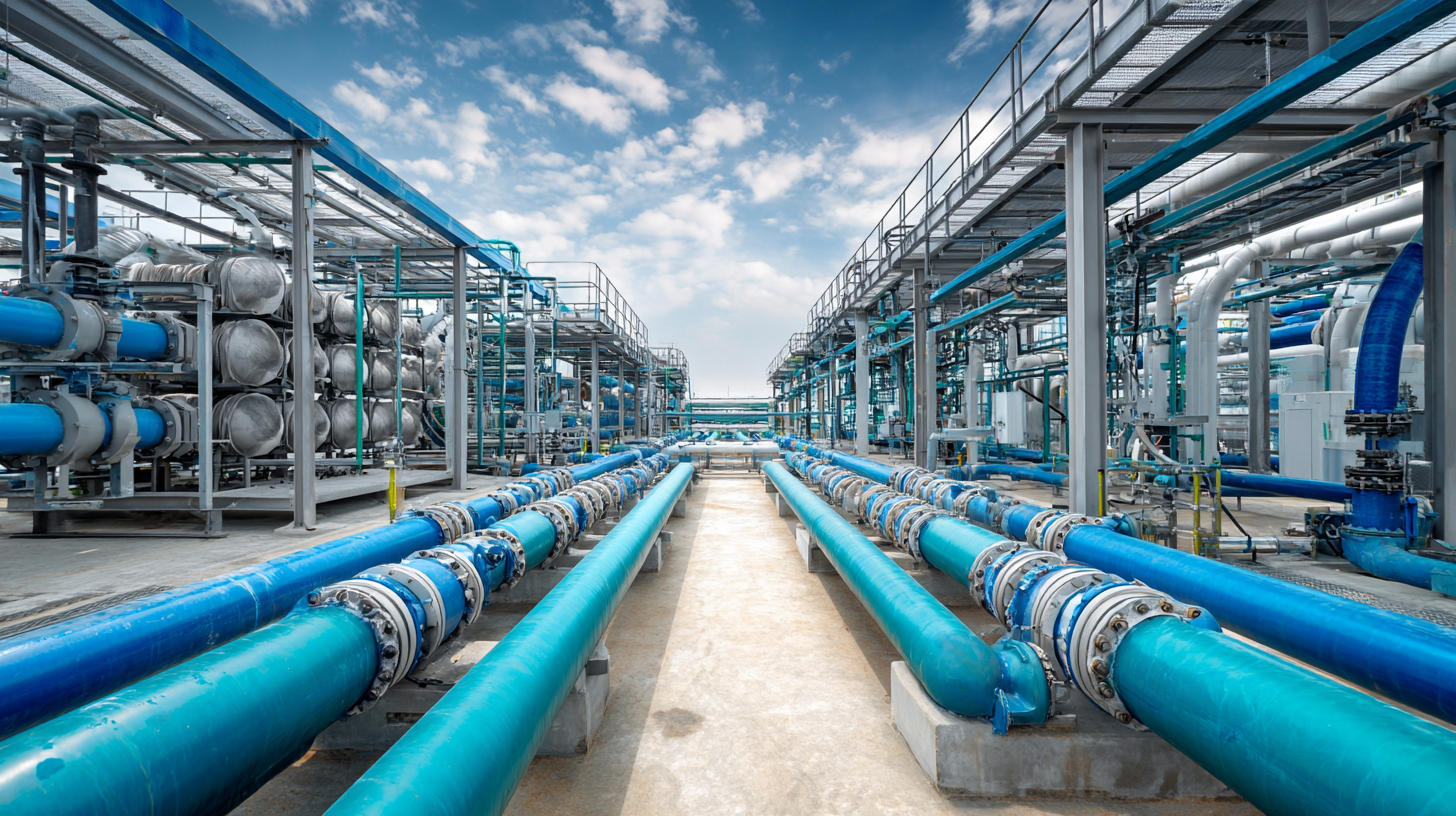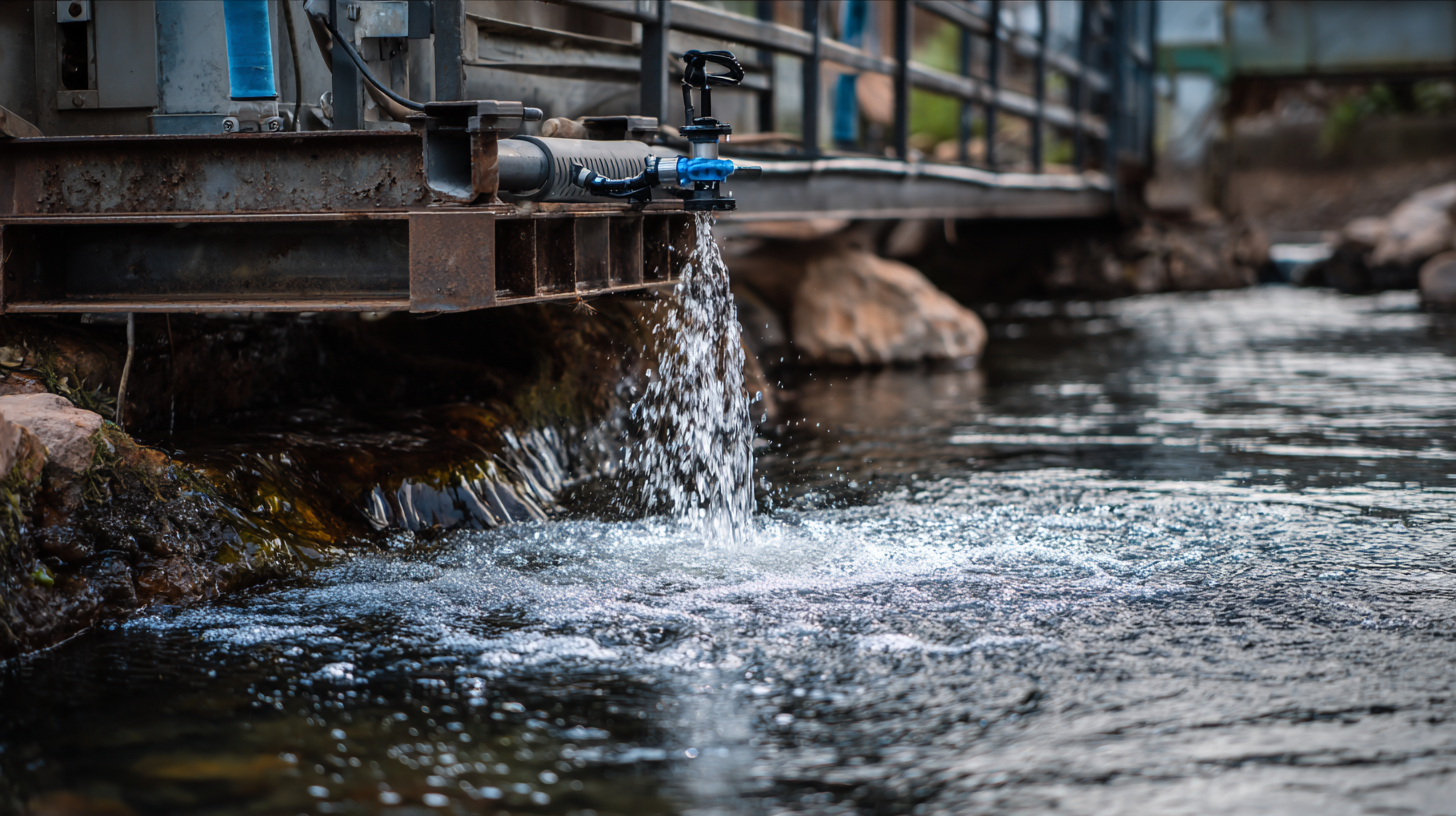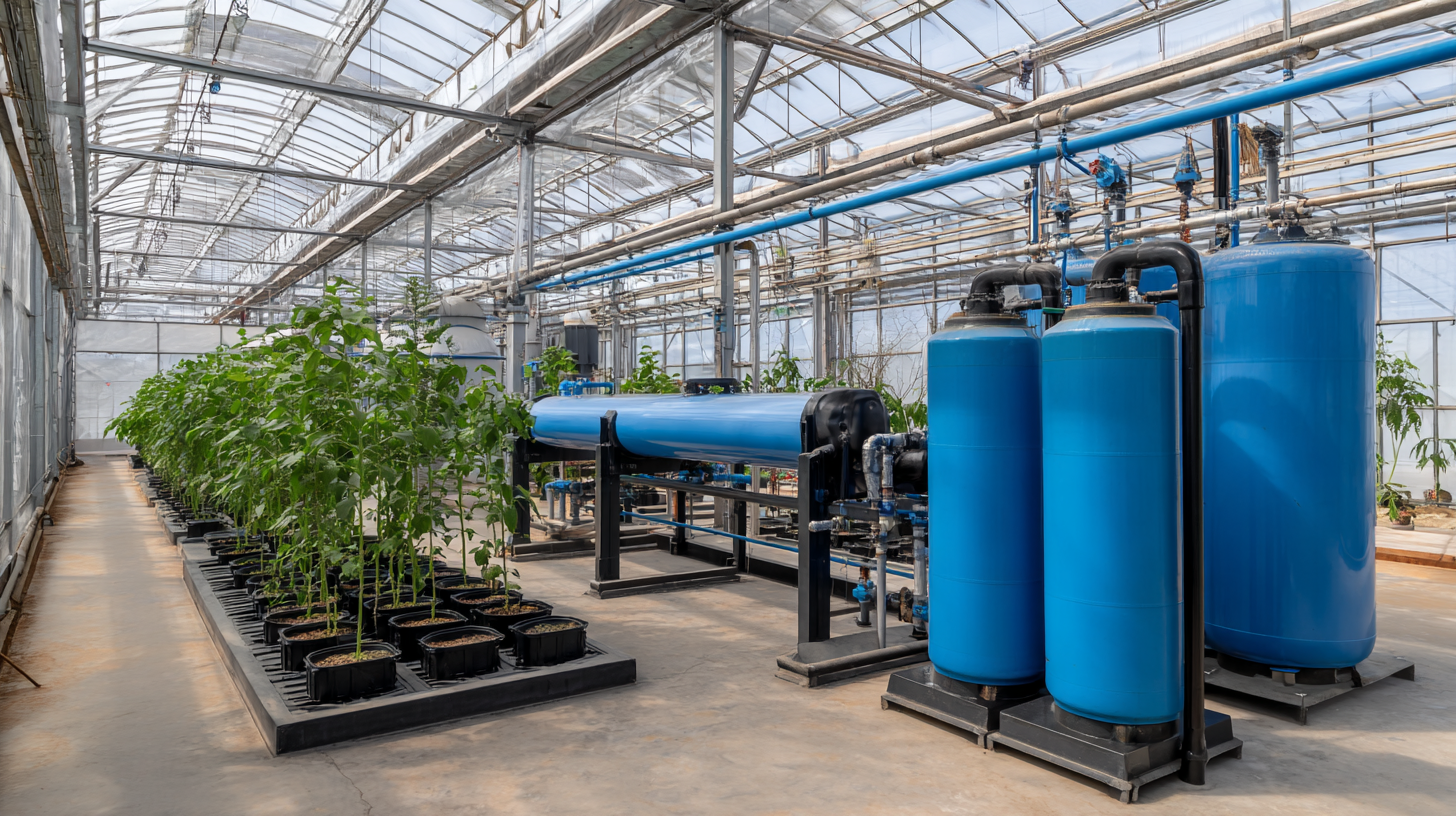

The future of sustainable agriculture is increasingly intertwined with innovative water treatment systems, which play a crucial role in promoting efficient water use and enhancing crop productivity. As global water scarcity becomes a pressing issue, with reports indicating that by 2025, two-thirds of the world’s population could be living in water-stressed conditions, the implementation of advanced water treatment technologies becomes imperative (United Nations, 2021). These systems not only improve water quality for irrigation purposes but also minimize environmental impacts, reduce water losses, and support the recycling of nutrients. A study by the Food and Agriculture Organization highlights that optimizing water usage through effective treatment can boost agricultural yields by up to 30%, ultimately contributing to food security and sustainable practices in agriculture. Thus, a comprehensive understanding of these systems is essential for farmers and stakeholders aiming to adapt to evolving ecological challenges while maximizing agricultural productivity.

In sustainable agriculture, advanced filtration technologies play a crucial role in water management, ensuring both the quality and quantity of water used in farming practices. According to a report by the Food and Agriculture Organization (FAO), agriculture accounts for about 70% of freshwater withdrawals globally. This underscores the need for efficient water use and treatment systems that can support sustainable practices in agriculture. Advanced filtration methods, such as reverse osmosis and nanofiltration, enable farmers to reclaim and recycle water, thus reducing dependency on freshwater sources while minimizing wastewater discharge.
Tips: Consider integrating advanced filtration systems that not only purify water but also enhance nutrient retention. This not only promotes healthier crops but can significantly lower overall water costs. Additionally, utilizing technologies like UV filtration can minimize the use of harmful chemicals in water treatment, aligning agricultural practices with environmental preservation.
Moreover, leveraging smart water management strategies in conjunction with advanced filtration technologies can enhance crop productivity and ensure the resilience of agricultural systems against climate change. According to a study published in the Journal of Cleaner Production, implementing such systems can reduce operational costs by up to 30% over traditional methods. By embracing these innovations, farmers can ensure they are not only meeting current water challenges but are also paving the way for a sustainable agricultural future.
The reuse of wastewater in agricultural practices has gained significant attention as a sustainable solution to address water scarcity. Recent studies indicate that properly treated wastewater can enhance crop yield by up to 30%, particularly in arid regions where irrigation water is limited. According to the Food and Agriculture Organization (FAO), integrating wastewater reuse into irrigation systems not only contributes to higher productivity but also enriches soil health by providing essential nutrients and organic matter.
However, it is crucial to ensure that the treated wastewater meets health and safety standards. Utilizing technologies such as constructed wetlands and advanced filtration systems can effectively reduce pathogens and contaminants, making it safe for agricultural use. In fact, the World Health Organization advises that with proper treatment, the risks associated with wastewater in agriculture can be minimized, promoting both crop vitality and environmental sustainability.
**Tips:** To maximize the benefits of wastewater reuse, farmers should regularly monitor soil health and crop performance. Implementing a rotation system that includes wastewater-irrigated crops can also help maintain soil fertility and reduce the risk of salinization. Additionally, educating local communities about the benefits and safety of treated wastewater is vital for gaining support and ensuring successful implementation.

The integration of smart irrigation systems into sustainable agriculture represents a transformational shift towards efficient water use. Modern technologies are redefining how water resources are managed, allowing farmers to optimize irrigation practices through real-time data analysis and automation. Advanced irrigation components—including sensors, climate control devices, and automated watering systems—support precise water application, significantly reducing waste and enhancing crop yield. This transition from traditional watering methods to smart irrigation reflects a growing commitment to resource conservation amidst increasing agricultural demands.
In the context of vertical farming and regional predictions for the agricultural market, the implementation of smart irrigation technologies aligns with the industry's focus on sustainability and innovation. Vertical farms, equipped with sophisticated irrigation and climate control systems, can substantially decrease water usage while maximizing productivity. As these practices gain traction, the agriculture technology market is forecasted to experience robust growth, with the smart irrigation sector expected to thrive. The drive towards efficiency and sustainability not only creates a more resilient agricultural framework but also contributes to the overarching goal of achieving food security in a changing climate.
The future of chemical treatment alternatives in sustainable water practices is a pivotal area as the agriculture sector increasingly aims to enhance water quality while reducing environmental health risks. With over 70% of the world’s freshwater being utilized for agricultural purposes (UN Water, 2021), innovative treatment solutions are vital. One promising avenue is the use of biopolymers derived from natural sources as effective coagulants. According to a recent report by the International Water Association, replacing conventional chemical treatments with natural alternatives can reduce overall chemical usage by up to 30%, significantly lowering the potential for harmful runoff.

In addition to biopolymers, technologies such as electrocoagulation are gaining traction. This process not only minimizes the need for chemical additives but also effectively removes heavy metals and pathogens, which are critical in sustainable water management. Studies indicate that implementing electrocoagulation can lead to over a 90% reduction in contaminants (Water Research, 2022).
Tips: To embrace chemical treatment alternatives, farmers should consider integrating biopolymer applications in their irrigation systems. Additionally, ongoing education about recent innovations can help stakeholders make informed decisions and foster collaborative efforts in developing tailored solutions for local water challenges.
Innovative water treatment solutions are transforming sustainable agriculture by providing
economic benefits that extend well beyond initial investments. According to the
International Water Management Institute, farmers implementing advanced water treatment technologies
can increase crop yields by 20-30% while reducing overall water usage by up to
50%. This efficiency is crucial in areas where
water scarcity poses significant risks to agricultural productivity.
Furthermore, the adoption of such technologies can lead to significant cost savings. The USDA estimates that
farmers utilizing treated wastewater for irrigation can save up to 60% on their water bills.
Additionally, improved water quality promotes healthier soil and crops, which can reduce the need for chemical fertilizers and pesticides, leading to
lower operational costs and increased profitability for farmers.
Tips for Farmers: